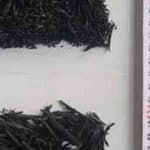BARCELONA, August 24 (Internews): Barcelona council is handing out water and caps to homeless people and has issued a heat alert as the city struggles to cope with record-breaking temperatures.
The temperature at midnight on Wednesday was close to 30C (86F) after daytime temperatures hit 38.8C, breaking the previous record of 37.4C set in 2010. Humidity is also high, adding to the sensation of suffocating heat.
Text messages have been sent to 3,600 vulnerable people advising them on how to protect themselves from the heat and directing them to their nearest “climate refuge”, air-conditioned spaces with drinking fountains.
The city has launched an emergency plan to water its 310,000 trees after a palm tree fell and killed a young woman last week.
Spain has been hit by successive heatwaves since June, with temperatures in excess of 40C expected across the country on Thursday. Cooler weather is forecast for the weekend, except for the south-east.
Temperatures are expected to fall by as much as 10C by Sunday and some rain is forecast, though not enough to alleviate the prolonged drought afflicting much of the country, in particular Andalucía in the south and Catalonia in the north-east.
Not even the usually temperate northern regions have been spared this summer, with the Basque Country and Cantabria recording temperatures of 40C and above.
Several people were admitted to hospital with heat-related conditions in Bilbao as the thermometer registered 43ºC. The heat is expected to move south on Thursday, with La Rioja and Zaragoza among the worst-affected areas.
The combination of heat and drought has put all of Spain on high alert for wildfires. The largest this year, on Tenerife, consumed 15,000 hectares (37,000 acres) of woodland. Several smaller fires have broken out in Castilla y León in the north-west.
Many public parks and nature reserves are closed to reduce the risk of fire.
Two consecutive hot and dry summers are also affecting the grape and olive harvests. Spain is the world’s largest producer of olive oil but last year’s crop was down by 50% and this year’s is expected to be as bad.
The price of top-quality extra virgin olive oil is close to double that of a year ago, resulting in a 50% drop in sales.
Without significant rainfall this autumn and winter it is feared that millions of olive, almond, pistachio, cherry and citrus trees will be irreparably damaged. Farming mangos and avocados may soon become unviable for lack of water.
Farmers can recoup some of their losses through insurance and the EU’S common agricultural policy, and the Madrid government released €357m (£305m) in subsidies last month for the worst-hit sectors, such as rice and tomato growers, as well as cherry farmers in western Spain.
Follow the PNI Facebook page for the latest news and updates.









